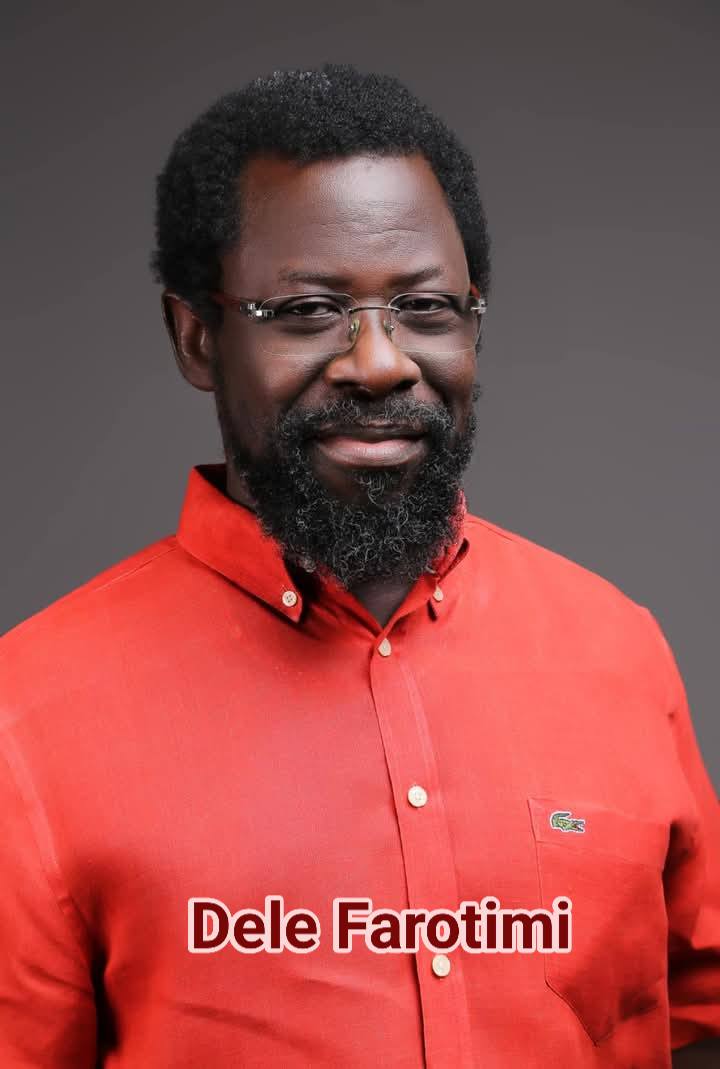If You Want to Be a Social Activist, Be a Refined One
In a world increasingly shaped by activism, protests, and grassroots movements, one truth remains eternal: it is not enough to be right; you must also be wise. Social activism, by its very nature, challenges power, questions norms, and unsettles comfort. But to be truly effective—and endure—activists must go beyond passion and rage. They must carry themselves with refinement, discipline, and strategic wisdom.
Being an activist is not a license to become unruly or brash. The loudest voice is not always the wisest, and the most viral movement is not always the most impactful. The modern activist must understand that public perception is critical. Governments, institutions, and even the masses observe not just what you stand for, but how you stand for it.
Many aspiring activists fall into the trap of measuring strength by the number of insults hurled at opponents, or by how many buildings they can threaten to shut down. But this is not strength—it is weakness masquerading as power.
In fact, a refined social activist must be more wary of his supporters than his critics. Critics are expected; they help sharpen your ideas and strategies. But unruly supporters? They can derail your message, create fear in neutral observers, and give the government the moral high ground to silence you.
YOU MAY READ
Human Rights Lawyer Dele Farotimi Denied Bail, Remanded in Prison Custody
Let’s take a sobering look at some recent social movements that lost the moral high ground due to toxic followership. During the rise of the Obidient movement in Nigeria—a political movement driven largely by youthful hope for change—many supporters began exhibiting disturbing tendencies.
Those who disagreed with the movement’s strategy or its candidate were not engaged intellectually or persuaded with facts. Instead, they were insulted, mocked, and sometimes threatened. As a result, the very thing the movement stood for—freedom, equity, justice—began to look like a mask for something else: an emerging cult-like structure intolerant of dissent.
Whether this was the fault of the leaders or the rank-and-file is not the central issue. The key takeaway is this: when your followers resemble an unregulated mob, power brokers—especially in fragile democracies—begin to panic. And when the state begins to panic, repression follows.
YOU MAY READ
Between Leah Sharibu and Dele Farotimi: Exposing The Double Standards of Some Nigerians
To understand how personality and lifestyle can affect the reach of activism, consider the case of Fela Anikulapo Kuti. Fela was arguably one of the most fearless truth-tellers in Nigeria’s post-colonial history. His music tore into the government’s corruption, the military’s oppression, and society’s apathy. His lyrics were educational, prophetic, and deeply African.
But alongside this brilliance was a contradictory lifestyle. His stage performances were often morally questionable. Drug use was widespread at his famed Shrine in Ikeja. His female dancers were scantily clad, and public displays of nudity were not uncommon. The overall atmosphere was one of rebellion—not just against government tyranny, but against moral norms as well.
What resulted was a double-edged sword. While his messages resonated widely, especially among the frustrated youth, the Nigerian government saw him as a complete threat—not just politically, but culturally. He was not merely a critic; he was, in their eyes, the ringmaster of a new social disorder. And thus, he was harassed, beaten, jailed, and undermined, not only for his songs but for the crowd he attracted and the lifestyle he promoted.
One must ask: Was it possible for Fela to have remained a powerful voice without alienating segments of the population or threatening public morality? Possibly. But it required a type of discipline Fela perhaps did not seek—or did not value.
YOU MAY READ
Nigerian Bar Association Condemns Arrest of Dele Farotimi and Invasion of His Law Firm
To be clear, the goal of activism is not to become bland or palatable to the oppressor. But effectiveness should not be sacrificed on the altar of chaos. The greatest movements in history succeeded because they combined fierce conviction with moral discipline.
Take the civil rights movement in the United States. Martin Luther King Jr. and his followers practiced non-violent resistance. They dressed in suits, marched in silence, carried banners, and chanted hymns. The moral clarity of their message was hard to ignore because it wasn’t drowned in vulgarity or violence.
Contrast that with movements where youthful energy spills into drug use, sexual licentiousness, and disorderly conduct. Suddenly, what could have been a legitimate campaign for justice begins to look like social deviance—an excuse to misbehave in the name of freedom.
The Cult of Naira Marley: A Case Study in Misguided Influence
For a more recent example, look at the rise of Naira Marley and the so-called Marlian movement. What began as a fan base for a popular Nigerian musician soon transformed into a cultural sub-group. Marlian boys were known for sagging trousers, drug use, and public defiance of authority. Marlian girls, in many cases, rejected bras and public decorum.
It was not long before parents began to fear that their children were being sucked into a cultural abyss disguised as music appreciation. The police and regulatory authorities also took notice, seeing in Naira Marley a new kind of influencer: not political, but cultural—and perhaps more dangerous for that reason.
Activists must learn from this. Influence can become dangerous when it is not rooted in responsibility. Popularity without discipline creates a mob, not a movement.
YOU MAY READ
The Saints and the Sinners of Nigerian Democracy: A Critical Reflection on Babangida’s Legacy
If your supporters cannot hold an intelligent conversation, cannot argue based on ideas, and resort to threats when challenged, you have failed as a leader. The success of a movement is not just in how loudly it speaks, but in how wisely it behaves.
Remember: You are judged by the company you keep. If you are surrounded by rascals, your message will be drowned by their noise. If you are celebrated by intellectuals, professionals, thinkers, and civil society, then your movement will find longevity and legitimacy.
Movements often use acronyms or catchy names to rally supporters. While this can help with branding and solidarity, it can also backfire when the name begins to evoke fear rather than hope. When people begin to call themselves Partel, Cootel, or Rotel, and these identifiers are associated with threats, online bullying, or real-life intimidation, then you have created a monster that will ultimately consume you.
The government is not afraid of your ideas. They are afraid of chaos. Once your movement begins to look like a threat to national peace, you will be targeted, not for what you said, but for what your supporters might do.
This is the silent trap many activists fall into. They focus so much on confronting external enemies that they forget to regulate internal conduct. But no government will tolerate a movement that begins to threaten institutions, disrupt order, or incite lawlessness.
Nigeria is not without its fair share of refined activists. People like Dele Farotimi, Harrison Gwamnishu, Charly Boy, and Omoyele Sowore have each carved a niche for themselves—often speaking boldly against corruption and injustice. But they have also understood the delicate balance between confrontation and composure.
- Dele Farotimi, a lawyer and author, has consistently used reason and logic to criticize the Nigerian state. His writing is sharp, but his demeanor remains composed. He doesn’t lead with insults, but with arguments.
- Harrison Gwamnishu is known for his fearless interventions in cases of abuse and injustice, yet he maintains a language of civility, even when angry.
- Charly Boy, despite his eccentric fashion and public persona, is not known for promoting violence or crude behavior among his followers.
- Sowore, even when detained and oppressed by state forces, continues to emphasize civil disobedience over violent revolt.
These are men who understand that the long-term game is not just about making noise, but about creating sustainable movements rooted in truth, character, and dignity.
You cannot preach freedom in the morning and indulge in self-destruction at night. If your lifestyle contradicts your message, then your movement becomes confusing. You will attract the wrong people for the wrong reasons.
An activist who talks about education must be educated or be educating. One who preaches about health must avoid self-damaging habits. One who demands transparency from government must be transparent about his own dealings. Anything short of this is hypocrisy—and hypocrisy is always a time bomb.
Influence is a dangerous tool. It can be used to enlighten or to mislead. When you command a large audience, you must understand the psychological responsibility that comes with that. You must filter your words, not because you are afraid of being misunderstood, but because you care about the outcomes.
Every leader must ask: If everyone did what I just said, what kind of world would we have? If the answer is chaos, then silence may be the better option.
Influence without responsibility is a ticking time bomb.
YOU MAY READ
Before the grand finale of the 2012 Nigerian Idol, every rational mind knew Mercy Chinwo was going to emerge the Idol of that season.
Finally, the refined activist understands that real change takes time. It is not achieved by one viral video or one protest march. It takes persistence, consistency, and credibility built over time. Governments may fall. Policies may change. But societies only evolve when hearts and minds are changed—and that takes time.
So resist the urge to be sensational. Build movements, not mobs. Speak truths, not threats. Inspire change, not chaos.
Let your life be your message.
Being a social activist in the 21st century is not about noise-making. It is about clarity, courage, character, and composure. The real battle is not just with oppressive governments but also with our own tendencies toward crudeness, ego, and impulsiveness.
So if you truly want to be a social activist—be a refined one.
If you want to be a social activists, be a refined one. A social activist should be more careful of those supporting him than those criticizing him.
As a social activist, you must have a refined personality. Your personality must be able to attract intellectuals around you and not touts. If your followers couldnt engage in intellectual discussions with those who disagreed with your modus operandi but resort to insuIts and threats, then you have rascals as followers and it wouldnt be long, government would look for a way to silence you.We ignorantly insuIted, quarrelled and threatened everyone that disagreed with the Obidient movement not knowing that our crude attitudes towards those that disagreed with us would put fear in the minds of the power brokers who does not want Nigeria to fall into the hands of a leader with followers that insult everyone that disagreed with them.Why did the government wanted to curtail the influence of Fela Anikulapo Kuti? The government were concerned about the character of the people his music resonate with. Without mincing words, he fearlessly spoke truth to the government. But his stage art were completely devoid of good morals.Fela sang good and thought provoking songs on stage but at the same time, his stage display was devoid of good morals. He was building with the right hand and at the same time destroying with his left hand. Do you know Fela was popular enough to instigate people against the government? Governent of that time was aware of this and that was part of the reasons they wanted to curtail his influence because he was becoming a threat to the state.Those who visited his shrine at Ikeja to listen to his good music were mainly smokers of his kind. It was just like watching bIue fiIm while the pastor is preaching on the pulpit. How can you be listening to Fela on stage performing a song that criticized bad behaviors of the government officials but you were holding and smoking a jumbo size moulded Indian hemp?Some people thought the then government were after Fela because he criticises the government. That was not the only reason. The government were also worried about his influence in the lives of the youths visiting the shrine.Look at Naira Marley. It got to a stage Nigerian youths started emulating everything Naira Marley does. Their women stopped wearing bra. The men sag and they were known as Marlians. At a point the parents got worried and started warning their children from playing Naira Marley’s music because it nearly turned to cuIt.Be careful if you are an activist with cuIt following. Don’t condone being known with a particular cult-like acronym to avoid being misunderstood as a cuIt group. If your followers who called themselves PARTEL OR ROTEL OR COOTEL would go as far as threatening to shut down a commercial institution or government institution, then the government would begin to see you as a threat to the stability of the country and they can gang up and siIence you.If you want to be an activist, please study Dele Farotimi, Harrison Gbamishu, Charly Boy and Sowore.









